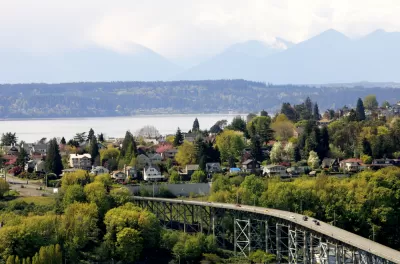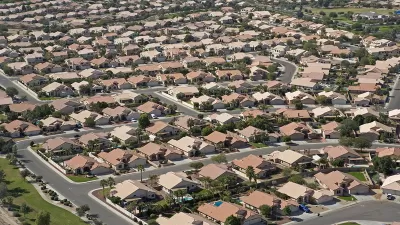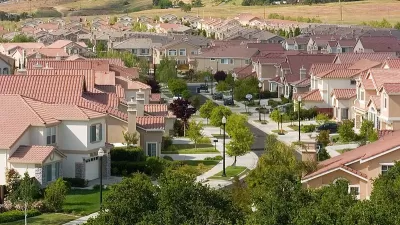To fight the growing housing crisis, most King County residents support an end to single-family zoning and accelerated housing development, according to a new poll.

A poll of King County residents shows that a "slim majority" support ending single-family zoning in Seattle neighborhoods, reports Gene Balk in the Seattle Times.
The survey presented the 501 respondents with questions about several approaches to alleviating the region's affordable housing shortage. While 55 percent supported increased density in the city, slightly fewer—51 percent—supported the change in nearby suburban neighborhoods.
The fight over single-family zoning has been raging in communities across the country as cities and states move to eliminate the designation that affordable housing advocates often call "exclusionary zoning," drawing attention to the more affluent nature of most single-family neighborhoods. Last October, in an effort to acknowledge diverse existing housing forms and lay the groundwork for zoning reform, the city of Seattle moved to rename single-family zoning to 'neighborhood residential' zoning. But opponents argue that rezoning can impact neighborhood character, increase demand for limited on-street parking, and put a strain on local roads and other infrastructure.
In what Balk calls an "interesting twist," 83 percent of respondents said they would prefer to live in a single-family home themselves. But for those who can't afford it, advocates say accelerated development is needed to make housing in the region more affordable, and 63 percent of residents want to see more housing on "underdeveloped" land. However, less than half of surveyed residents wanted to see reduced parking requirements for new construction, despite indications that parking requirements raise the cost of housing and induce car ownership and congestion.
FULL STORY: Survey shows most King County residents likely open to ditching single-family zoning

Maui's Vacation Rental Debate Turns Ugly
Verbal attacks, misinformation campaigns and fistfights plague a high-stakes debate to convert thousands of vacation rentals into long-term housing.

Planetizen Federal Action Tracker
A weekly monitor of how Trump’s orders and actions are impacting planners and planning in America.

San Francisco Suspends Traffic Calming Amidst Record Deaths
Citing “a challenging fiscal landscape,” the city will cease the program on the heels of 42 traffic deaths, including 24 pedestrians.

Defunct Pittsburgh Power Plant to Become Residential Tower
A decommissioned steam heat plant will be redeveloped into almost 100 affordable housing units.

Trump Prompts Restructuring of Transportation Research Board in “Unprecedented Overreach”
The TRB has eliminated more than half of its committees including those focused on climate, equity, and cities.

Amtrak Rolls Out New Orleans to Alabama “Mardi Gras” Train
The new service will operate morning and evening departures between Mobile and New Orleans.
Urban Design for Planners 1: Software Tools
This six-course series explores essential urban design concepts using open source software and equips planners with the tools they need to participate fully in the urban design process.
Planning for Universal Design
Learn the tools for implementing Universal Design in planning regulations.
Heyer Gruel & Associates PA
JM Goldson LLC
Custer County Colorado
City of Camden Redevelopment Agency
City of Astoria
Transportation Research & Education Center (TREC) at Portland State University
Jefferson Parish Government
Camden Redevelopment Agency
City of Claremont





























